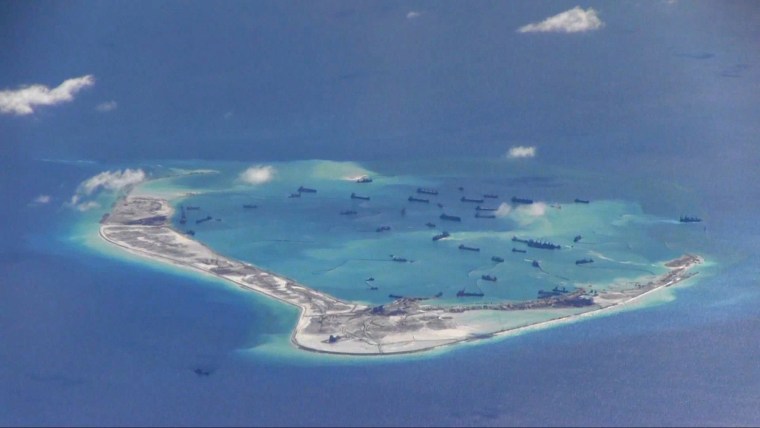Nearly a week after President Donald Trump called for hiking U.S. defense spending, China will follow suit.
Chinese Premier Li Keqiang is expected to announce Sunday, during remarks to the National People’s Congress (NPC) in Beijing, that the country will boost its defense budget by 7 percent.
But the figure marks the smallest military spending increase in seven years and continues a trend of lowered growth amid China’s slowing economy — a sign that the country isn't trying to outdo America in funding defense in 2017.

Last year, China's defense budget grew by 7.6 percent, according to data from industry analysts IHS Jane’s, following several years of double-digit growth.
"China's military development and construction is to continue. This is the requirement for the defense of our national sovereignty and security,” NPC spokeswoman Fu Yang said Saturday.
Although China has become the second-biggest defense spender in the world, it’s investment still pales in comparison to that of the United States.
Trump has proposed increasing America's defense and security spending by $54 billion while putting the budgets of other lower-priority government agencies on the chopping block. That's about a 10 percent increase for fiscal year 2018 on the current spending figure, which already totals close to $600 billion.
Meanwhile, the increase of China's defense budget of about 67 billion yuan ($9.7 billion in U.S. dollars) would push the total defense budget past the 1 trillion yuan ($145 billion) mark for the first time, Reuters reported.
China, as it maintains its vast military might, still faces numerous regional challenges, including continued territorial disputes with neighboring nations such as Vietnam and the Philippines in the South China Sea.
It is also carrying out construction to fortify islands in the region in order to expand military bases. China considers this expansion as its legal right and a vital way to protect one of the country's main shipping lanes.
U.S. officials have described the island-building project as an attempt by China to assert military dominance in the area.
NBC News reported last month that the U.S. response to China’s moves in the South China Sea were becoming more aggressive as it deploys additional military hardware in the area.
Meanwhile, White House spokesman Sean Spicer vowed in January that the U.S. would stand up to China in the South China Sea.
Late last year, the Chinese Navy seized a U.S. underwater drone there that the Pentagon said was collecting data during a routine survey.
Trump, himself, managed to ruffle feathers in Beijing by speaking with President Tsai Ing-Wen of Taiwan following his election win in November.
The call broke decades of diplomatic protocol and raised tensions with Beijing, which views Taiwan as a breakaway territory.
On top of this, Trump has accused Beijing of unfair trade practices, deliberately undervaluing its currency and failing to do enough to rein in North Korea’s nuclear ambitions.
